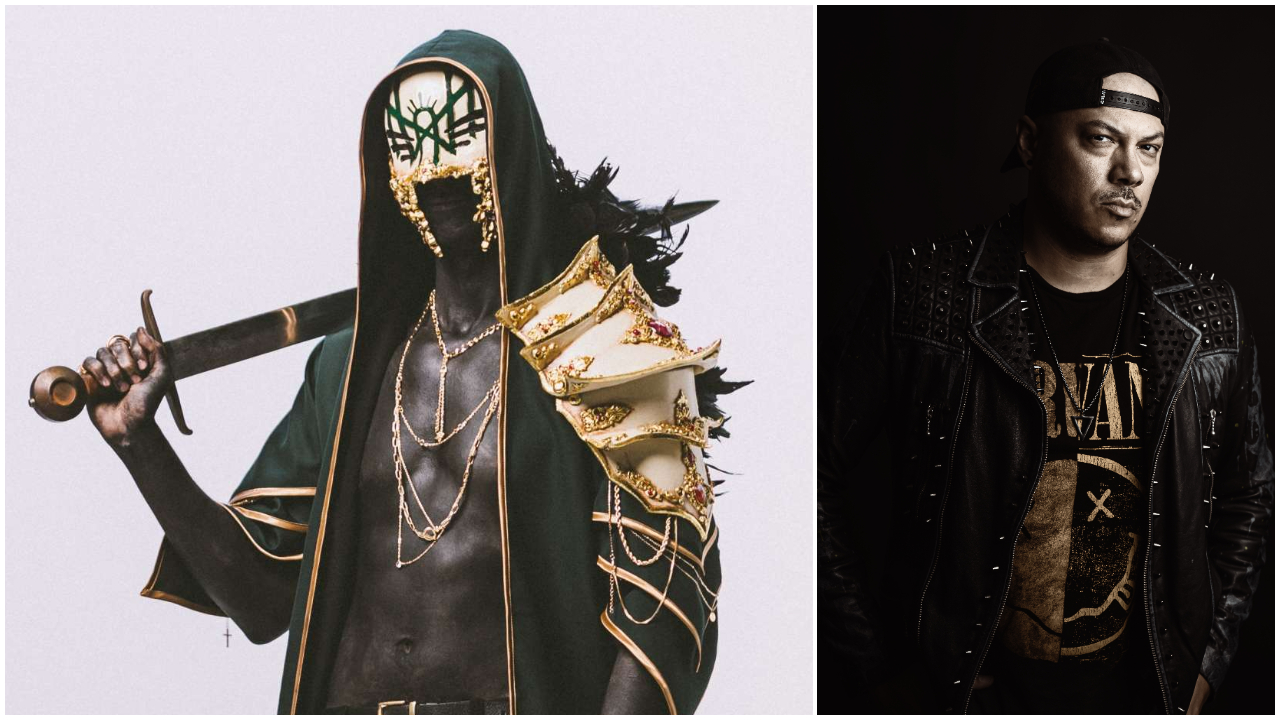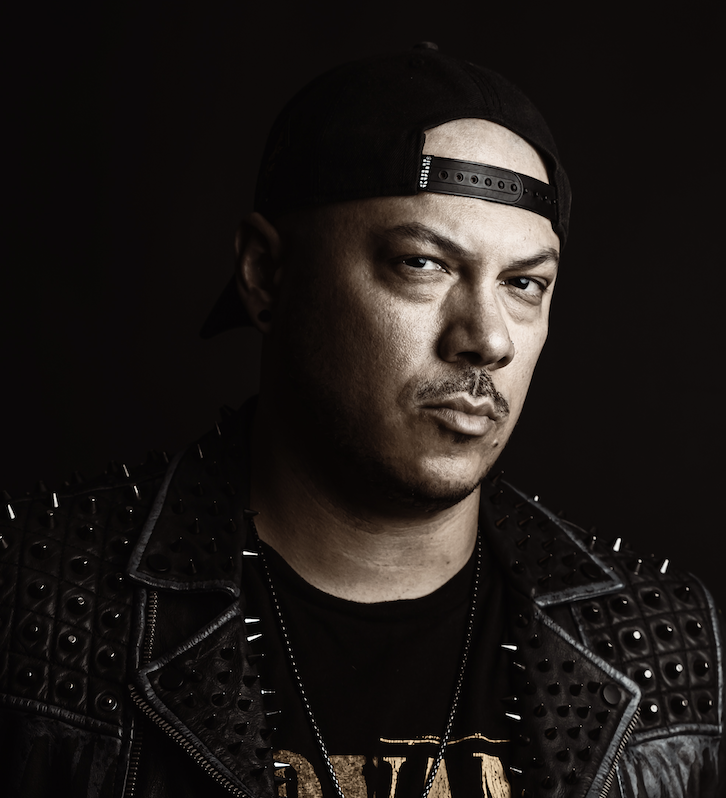The pretentious gatekeeping around Sleep Token points to a toxic heavy music culture - as a metal guitarist of over 25 years, I've seen this movie before
Don't get Sleep Token? That's fine, but let's stop it with the elitism, writes God Forbid's Doc Coyle

The discourse. It’s a nightmare, but I suppose there is a price for success.
I’ve been in the heavy music scene long enough to witness the primordial awakenings of metalcore in the mid-'90s in New Jersey, watching bands like Overcast, Earth Crisis, and Cave In break the mold. I was fortunate to be in God Forbid, a band that helped usher the subgenre into mainstream recognition alongside Killswitch Engage, Shadows Fall, and Lamb of God. We even graced the cover of Decibel Magazine, which proclaimed that our 2005 opus IV: Constitution of Treason was “The End of Metalcore”. Despite our ambitions to intellectualize the core and transcend formula, its imminent demise was misdiagnosed.
Flash forward 20 years, and not only has the metalcore genre thrived, it has become the biggest subgenre in heavy music, expanding its sonic palette to include nu metal, radio rock, hip hop, EDM and, of course, pop. Even pop-country is being employed by one of the hottest bands in the scene, Bilmuri. In recent years a slew of metalcore acts have risen to the ranks of festival headliners, chart toppers, and arena rock - Bring Me The Horizon, Bad Omens, Architects, Falling In Reverse, Spiritbox, Ice Nine Kills, Parkway Drive, I Prevail, and the current king of the hill: Sleep Token.
Their fourth LP, Even In Arcadia, has launched them into the stratosphere. It scored the top spot on the album charts in eight countries, including the US, UK, Canada, and Germany. They sold out an entire US arena tour in a little over a day, and the album broke the record for most streams in a single week for a hard rock album on Spotify. We haven’t seen heavy bands achieving this much mainstream success since the halcyon days of early 00s nu metal and emo.
In spite of, or maybe due to, this commercial triumph, the backlash has been harsh and swift. The metalcore online discourse, as I said, is a nightmare.
My Twitter feed reads like a revolt against Sleep Token. The most common refrain is some version of, “This band should not be allowed to be called metal anymore!” Many find the cult-like devotion of their fans to be repulsive.
Several critics appeared to have disdain for Even In Arcadia as well. Cool kid rag Pitchfork called the album “a vacant wasteland where joy, excitement, and intrigue… go to die." YouTube’s most prominent music critic, Anthony Fantano, seemed perturbed by being tasked with reviewing the album, exclaiming Even In Arcadia as “annoying music, hideous sound, very bland, boring, uninspired writing…mediocre pop with super, loud Djent guitars”.
Sign up below to get the latest from Metal Hammer, plus exclusive special offers, direct to your inbox!
This isn’t critique - it’s antipathy, revulsion, wholesale rejection. But the subtext gives away the game. Sleep Token's crime is not their artistic choices; it’s the audacity to become the most popular rock act on earth with those choices.
My biggest pushback against this line of critique is against the idea that Sleep Token’s lean into pop discredits their metal bona fides, or that they are doing pop poorly. In my estimation, since Bring Me The Horizon released their polarizing album, amo (2019), pop has burrowed its way into metalcore’s DNA - be it Bad Omens delving deep into dark pop or Spiritbox moonlighting with Megan Thee Stallion. Many of the top dogs are already swimming in this pool. But Sleep Token crossed some invisible purity line, breaching the social contract.
Apparently, there’s a sacred equation - etched on some mythical stone tablet - that dictates the exact acceptable amount of distortion, screams and double-bass required to qualify as “club metal.”Of course, this does not apply when legit metal bands decide to go off the reservation - Opeth get a pass for what many consider their best album, Damnation. Or the same elitists will laud the latest mellow but haunting Myrkur release, or Devin Townsend experimental side quest. Because they stay in their lane, know their place. They dare not speak to the normies.
Outside of the trvely devout, battle-vested zealot, most of us metalheads and hardcore kids like pop music. Everyone is happy when Billie Jean comes on or a Bruno Mars banger turns up. We all know the big tunes from The Weeknd or Post Malone. Stop lying to yourself. People have even come around to appreciate late 90s, early 00s pop like Britney Spears and The Backstreet Boys. Why do we have to lie to ourselves and have guilty pleasures?
I fear that we’ve become a society incentivized not to enjoy blatantly enjoyable things. Pop music is not so much a sound as a snapshot of what is popular. Hip hop became pop when it became the most popular genre on earth. Country is making strides in that same direction.
And I reject the notion that Sleep Token is just doing pop poorly. Caramel is a disturbingly excellent pop song. The job of a pop song is to infect you, hit your pleasure centers and make you want to keep listening. It’s more art than science, and if everyone could do it, they would. Most of the biggest metal songs are pop songs with heavier window dressing - Metallica’s Enter Sandman, Iron Maiden’s Wasted Years, or Deftones Diamond Eyes. And hip hop has shown us that you don’t even need melody to make a pop hook.
I very much enjoy Even In Arcadia. Its best songs don’t hit the peaks of The Summoning and Chokehold from Take Me Back To Eden, but I find it a more satisfying listen top-to-bottom. I don’t begrudge anyone who dislikes the album or the band. What bothers me is the coalitions of lynch mobs against popular heavy bands as a trend. It’s knee-jerk contrarianism to dislike what the masses like. I don’t think that’s cool.
But we’ve seen this movie before. Limp Bizkit went from the biggest band in the world in 2002 to persona non grata in a couple of years. I saw them get booed opening for Metallica in 2003. Rage Against The Machine bassist, Tim Commerford, even apologized for Limp Bizkit’s existence. Now, they are getting their flowers for being cool, innovative, and fun. Many old fans remembered how great they were, and a whole new generation appreciate them without the baggage. It was also trendy to hate Metallica for 10 years. Now, people love them again.
I just don’t know why we have to keep repeating the same patterns of tearing down our successful acts. This is “why we can’t have nice things?” in practice. Hating bands as trends is not cool because trying to be cool isn’t cool. It is another form of conformity, elitism. I believe truly being a fan is being a nerd. It’s passionate, obsessive and unabashedly earnest. Unfortunately, we live in a time where earnestness is viewed as cringe.
Sometimes I wonder if the “next Nirvana” could even happen in today’s climate - a band that marries artistic credibility with commercial validation. Reaching the top of the pyramid is anathema. Not to be revered, but proof that the entity is compromised, industry-planted with souls long foreclosed at the Mississippi crossroads.
I don’t want to be the hall monitor scolding the kids to “do better”. I’m sure I’ll be told I’m a moron with bad taste. Like what you like. Hate what you hate. But I think we’d all be healthier if we weren't so protective and defined by our outspoken contempt. It’s just music. Just because you have a right to be an asshole about this stuff, doesn’t mean you have to be. Be an outsider. Be a nerd. And it's okay to sometimes be a basic bitch that likes things that make you feel good.
Follow Doc at doccoyle.net and @doccoyle on socials. Listen to the Ex-Man Podcast via your usual podcast platforms. Sleep Token's latest album Even In Arcadia is out now. They headline Download for the first time this month

Doc Coyle is a guitarist, vocalist, songwriter and podcaster who has had a significant presence on the metal scene for over 25 years. Known predominately for his tenures in God Forbid and Bad Wolves, Doc has also written with the likes of Ice-T, Jamey Jasta and Howard Jones and filled in on guitar and bass for Lamb Of God, Trivium, Ice Nine Kills and more. He has also released his own solo material and presents and produces the Ex-Man Podcast.

